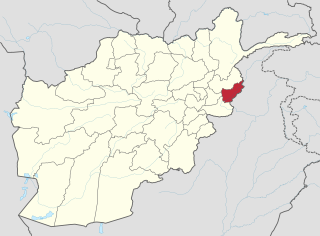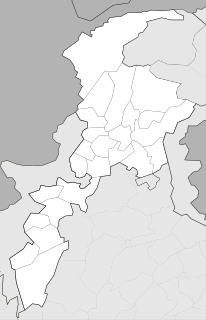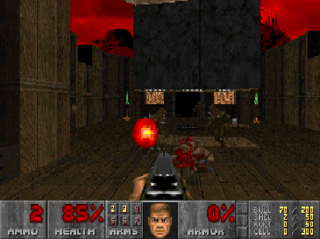
Tehrik-i-Taliban Pakistan, alternatively referred to as the Taliban, is an Islamic armed group which is an umbrella organization of various militant groups based in the Khyber Pakhtunkhwa province along the Afghan border in Pakistan. Most Taliban groups in Pakistan coalesce under the TTP. In December 2007 about 13 groups united under the leadership of Baitullah Mehsud to form the Tehrik-i-Taliban. Among the Tehrik-i-Taliban stated objectives are resistance against the Pakistani state, Pakistani army, enforcement of their interpretation of sharia and a plan to unite against NATO-led forces in Afghanistan. TTP aim is overthrow Government of Pakistan by waging terrorist campaign against the Pakistan armed forces and the state. TTP depends on tribal belt along the Afghanistan-Pakistan border to draw its recruits. TTP draws ideological guidance from Al-Qaeda and maintain ties with Al-Qaeda. While Al-Qaeda in turn relies on TTP to provide safe haven to Al-Qaeda along the Afghanistan-Pakistan border.
Zaki-ur-Rehman Lakhavi is a Pakistani terrorist, known as the top leader of the militant group Lashkar-e-Taiba and currently serves as Supreme Commander of operations in Kashmir and as a member of LeT's General Council. He is listed on India's NIA Most Wanted list.
St. Mary's High School, Peshawar, is Pakistani educational institution in Peshawar, Khyber Pakhtunkhwa.
The Pakistan Army General Headquarters attack, was a hostage-rescue mission carried by SSG Division during which, on 10 October 2009, when 10 gunmen in military uniform opened fire on the General Headquarters in Rawalpindi, Punjab, Pakistan. The attack killed nine soldiers, nine militants and two civilians and was a major escalation in Pakistan's domestic insurgency. One militant was wounded and captured by security forces. Soon after the attack, the militant infiltrated the security buildings where 22 civilian and military officials were held hostage by the militants. The Pakistan Army immediately launched a hostage rescue operation led by the SSG Division, Army Special Forces and the 13th Regular Regiment.

Jundallah is a militant group associated with the Tehrik-i-Taliban Pakistan (TTP). The group was commanded by militant Hakimullah Mehsud, the Emir of TTP, until his death on 1 November 2013. Ahmed Marwat is the spokesman of the group. On 17 November 2014, a group spokesman told Reuters that it had vowed allegiance to the Islamic State of Iraq and the Levant, after a meeting with a three-man delegation from the group. In January 2017, the Government of Pakistan imposed, interalia, a ban on Junddullah and other splinter groups that claimed responsibility for terror attacks.

On June 22, 2013, about 16 militants, reportedly dressed in Gilgit Scouts uniforms, stormed a high-altitude mountaineering base camp in Gilgit–Baltistan, Pakistan, and killed 11 people; 10 climbers and one local guide. The climbers were from various countries, including Ukraine, China, Slovakia, Lithuania and Nepal. A Chinese citizen managed to escape the assailants, and a member of the group from Latvia happened to be outside the camp during the attack. The attack happened at the base camp on Nanga Parbat, the ninth highest mountain in the world. The mountain is popular among trekkers and mountaineers from June to August because of the moderate weather conditions.
The response to the 2014 Peshawar school massacre, that occurred on 16 December 2014 was widespread. The attack occurred at the Army Public School in the Pakistani city of Peshawar, killed a total of 145 people which included 132 school children and ten school staff members.

2014 Kunar Offensive refers to a 2014 armed conflict of the ongoing War in Afghanistan, between the Afghan Army and armed insurgent groups, such as the Afghan Taliban, Tehrik-i-Taliban Pakistan (TTP) and Lashkar-e-Taiba. It occurred in the Dangam district of eastern Kunar province, in Afghanistan bordering on Pakistan.
The National Action Plan is an action plan that was established by the Government of Pakistan in January 2015 to crack down on terrorism and to supplement the ongoing anti-terrorist offensive in North-Western Pakistan. It is considered as a major coordinated state retaliation following the deadly Peshawar school attack. The plan received unprecedented levels of support and co-operation across the country's political spectrum, inclusive of the federal and provincial governments.

On 13 May 2015, eight gunmen attacked a bus travelling in Safoora Goth, Karachi, Sindh in Pakistan. The shooting left at least 46 people dead. All of the victims were of the Ismaili Shia Muslim minority, suggesting the attack was a targeted killing of sectarian nature.

Tahira Qazi SS was a Pakistani school teacher and principal of Army Public School Peshawar who was killed in Peshawar school attack on 16 December 2014.

On 20 January 2016, four gunmen opened fire at Bacha Khan University near Charsadda, Pakistan. It is located in the Charsadda District of Khyber Pakhtunkhwa. At least 22 people were killed and over 20 others were wounded. Over 200 students were rescued from the premises, while the gunmen were killed by security forces. The Tariq Geedar Afridi faction of the Tehrik-i-Taliban Pakistan claimed responsibility for the attack, although the main spokesman for Tehrik-i-Taliban Pakistan later denied and condemned the assault.

On 27 March 2016, Easter Sunday, at least 75 people were killed and over 340 injured in a suicide bombing that hit the main entrance of Gulshan-e-Iqbal Park, one of the largest parks in Lahore, Pakistan. The attack targeted Christians who were celebrating Catholic Easter. However, as both Christians and Muslims were mingled in the park, Muslims were also killed. The majority of victims were women and children. Jamaat-ul-Ahrar, a group affiliated with the Pakistani Taliban, claimed responsibility for the attack. The attack led to worldwide condemnation and national mourning throughout Pakistan. Pakistan also launched a widespread counter-terrorism operation in South Punjab, arresting more than 200 people.

Said Zaman Khan v. Federation of Pakistan is a landmark decision in which the Supreme Court of Pakistan upheld death sentences against sixteen terrorists convicted by military courts in 2016. The accused included members of militant groups Tehreek-i-Taliban Pakistan and al-Qaeda, as well as suspects involved in the Peshawar school massacre in 2014, the Bannu jailbreak in 2012, and the Rawalpindi Parade Lane bombing in 2009. The decision marked the first time the Court ruled on the legality of military trials, legalized for civilian terror suspects after the school massacre.

On 13 February 2017, a suicide bombing took place on the Mall Road in Lahore, Pakistan, where a large crowd of Pharmaceutical manufacturers and owners, herbal manufactureres, homeopathic manufactureres, wholesellers, pharmaceutical marketeers, chemists, stockists, distributors, doctors and pharmacists were holding a protest at Charing Cross in front of the Punjab provincial assembly. According to Punjab Police sources, 18 people were killed including several police officials, and at least 87 were injured.
Operation Radd-ul-Fasaad is a codename of a combined military operation by the Pakistani military in support of local law enforcement agencies to disarm and eliminate the terrorist sleeper cells across all states of Pakistan, started on 22 February 2017. The operation is aimed to eliminate the threat of terrorism, and consolidating the gains of Operation Zarb-e-Azb which was launched in 2014 as a joint military offensive. It is further aimed at ensuring the security of Pakistan's borders. The operation is ongoing active participation from Pakistan Army, Pakistan Air Force, Pakistan Navy, Pakistan Police and other Warfare and Civil Armed Forces managed under the Government of Pakistan. This Operation has been mostly acknowledged after Operation Zarb e Azb.

On 8 November 2006, a suicide bombing took place at Punjab Regiment Center in Dargai, Khyber Pakhtunkhwa, Pakistan that targeted Pak army. The attack left 42 soldiers dead while 20 others were wounded. Pakistan Taliban claimed responsibility of the attack.
On 1 December 2017, 3–4 gunmen arrived at the hostel of Agricultural Training Institute at Agricultural University Peshawar and started firing as a result of which at least 13 people were killed and 35+ were injured. Tehreek-e-Taliban claimed responsibility for the attack.















